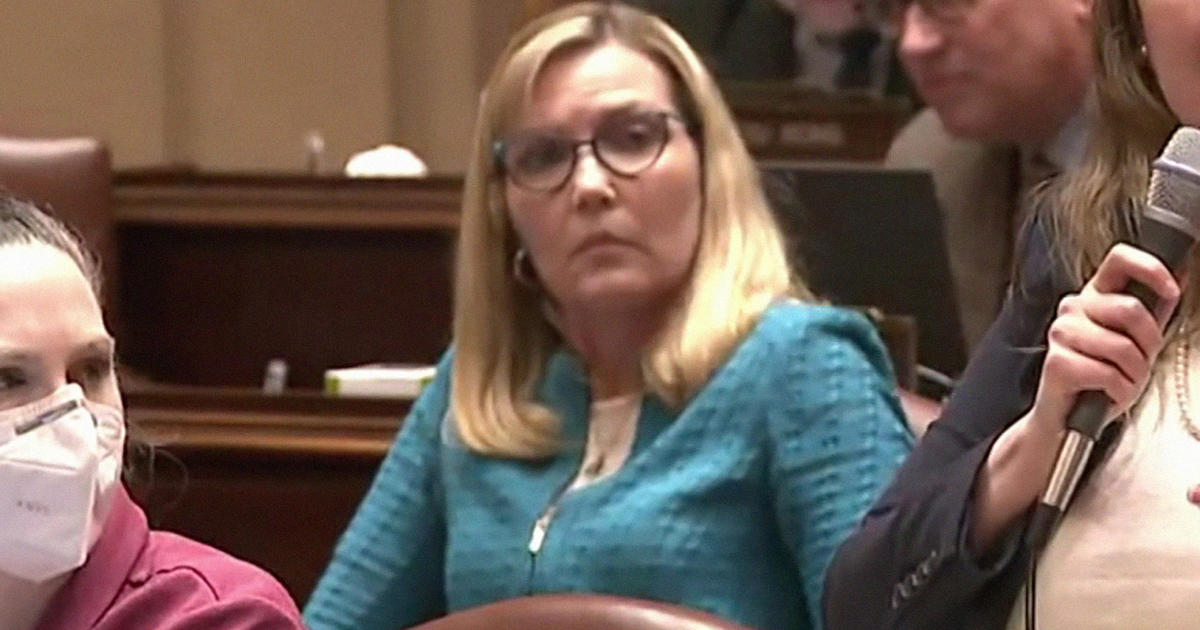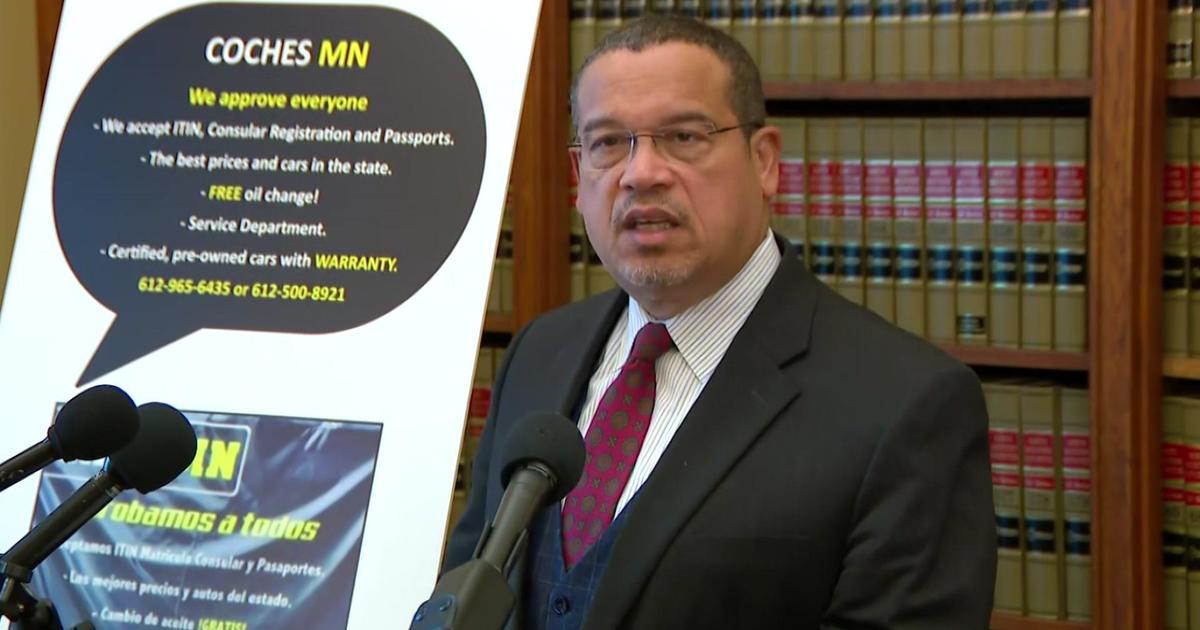With Time Short, Minn. Lawmakers Meet Over Weekend
ST. PAUL, Minn. (AP/WCCO) — oving in fits and starts Saturday, the Minnesota Legislature tried to nail down the final pieces of the next state budget, including votes on a nearly $16 billion school funding bill that's been one of the chief priorities for Democrats running things at the Capitol.
Floor sessions also were likely on Sunday, as the late Monday deadline for adjourning grew closer.
In addition to House and Senate votes on a cluster of budget bills, House Democratic leaders said they planned to bring up a bill to authorize a union vote for home daycare providers and another for personal care attendants who serve the elderly or disabled. That measure, intensely opposed by Republicans, drew crowds of demonstrators from both sides of the issue to the Capitol on a soggy Saturday.
Green-shirted backers of the bill framed it as an incremental step toward unionization, which would only occur through a subsequent election among those affected. One held a sign, "It's America. Let us vote."
Opponents were just as vocal in trying to head the bill off, and House Republicans filed more than 100 amendments and prolonged debate. Lisa Coonan, an in-home provider in Mendota Heights, said she's worried about having to pay union dues without much tangible return.
"This isn't going to give me a right to strike. We're not going to get more days off, or any other benefits," Coonan said. "I'm an independent business owner. I don't need a union to represent me. I have a voice. I'm here today."
But budget bills were up first, including the single biggest: the $16 billion education funding package, which amounts to more than 40 percent of Democrats' proposed $38 billion total budget for the next two years. The bill boosts state spending by $475 million over the last two years on programs that reach from early childhood to 12th grade.
"It's a bill that will actually make a huge difference, not only for the students of our state but for the future economy of our state," said the chief House author, DFL Rep. Paul Marquart of Dilworth. Much of the new spending is aimed at young children, including funds for all-day kindergarten in districts statewide, and grants to help low-income families pay for Head Start or school-based daycare programs.
Marquart said the latter would mean better early learning options for about 8,000 students. That and the expanded kindergarten are aimed at erasing large divides in academic performance between white and non-white students in the state, what's often called the achievement gap. While traditionally boasting some of the country's best test scores, Minnesota has struggled to close that gap.
"If we can close that achievement gap, that will have such huge economic benefits," Marquart said.
If passed by the House, the education funding bill heads to the Senate and then Dayton. By Saturday afternoon, lawmakers had sent Dayton four budget bills: a health and assistance programs budget that includes 5-percent pay hikes for nursing home workers; a courts and public safety budget that increases pay for judges; a higher education budget that freezes public college and university tuition; and a budget for jobs and economic development programs.
The Senate passed the $11 billion health and human services budget on Saturday, after the House passed it late Friday. In addition to the nursing home worker pay increase, it also includes a 1-percent pay increase for care workers for the disabled. Republicans said with Democrats planning to raise more than $2 billion in new taxes, that those raises should have been bigger.
"We have priorities in this chamber that I'm just amazed at," said Sen. Julie Rosen, R-Fairmont.
Democrats want to cover much of the new spending with a 2-percent income tax hike on the wealthiest 2 percent of Minnesotans, a cigarette tax hike of at least a dollar more per pack, and some sales tax hikes on businesses. Tax bill negotiators continued to plug away Saturday morning to finalize those details. Late Friday, they unanimously agreed their final bill would include $400 million in state funds to help fund infrastructure improvements in Rochester that were sought by Mayo Clinic as the medical giant seeks to expand in its home city.
One proposed fee hike fell out of the mix Saturday, after House and Senate negotiators on the environment and agriculture budget dropped a House DFL provision to raise water fees by about $6 million to pay for improving water quality. Rep. Rick Hansen, DFL-South St. Paul, said those programs would instead be funded by the general fund. The House looked likely to take that bill up later Saturday, too.
A number of big issues were uncertain as Monday's deadline approached. It was unclear if the Senate would take up a constitutional amendment, passed Friday by the House, which proposes establishing an independent council to set pay for state lawmakers. A proposed state minimum wage hike remained stuck between House and Senate Democrats unable to agree how much it should go up. And a proposed $109 million in construction bonds to help pay for state Capitol renovations was in limbo after a larger, $800 million construction bill fell a few votes short of passage in the House.
(TM and © Copyright 2013 CBS Radio Inc. and its relevant subsidiaries. CBS RADIO and EYE Logo TM and Copyright 2013 CBS Broadcasting Inc. Used under license. All Rights Reserved.This material may not be published, broadcast, rewritten, or redistributed. The Associated Press contributed to this report.)
Bill Upping Spending On Minn. Schools Almost Law
ST. PAUL, Minn. (AP) — Minnesota schools are in line for a bunch of new money from the state.
The Legislature was ready Saturday to sign off on a massive education finance bill that puts $485 million more into programs from early childhood through high school graduation.
Every school district would get at least $78 more per student next year and $80 on top of that the following year. That chews up about $235 million of the new spending.
The other major change would have the state pick up the full cost of all-day kindergarten. Districts that offer it would no longer charge parents an extra fee for extra hours beyond their half-day programs.
The education bill consumes a big chunk of the new money from tax increases sought by the Democratic-led Legislature.
(© Copyright 2013 The Associated Press. All Rights Reserved. This material may not be published, broadcast, rewritten or redistributed.)



